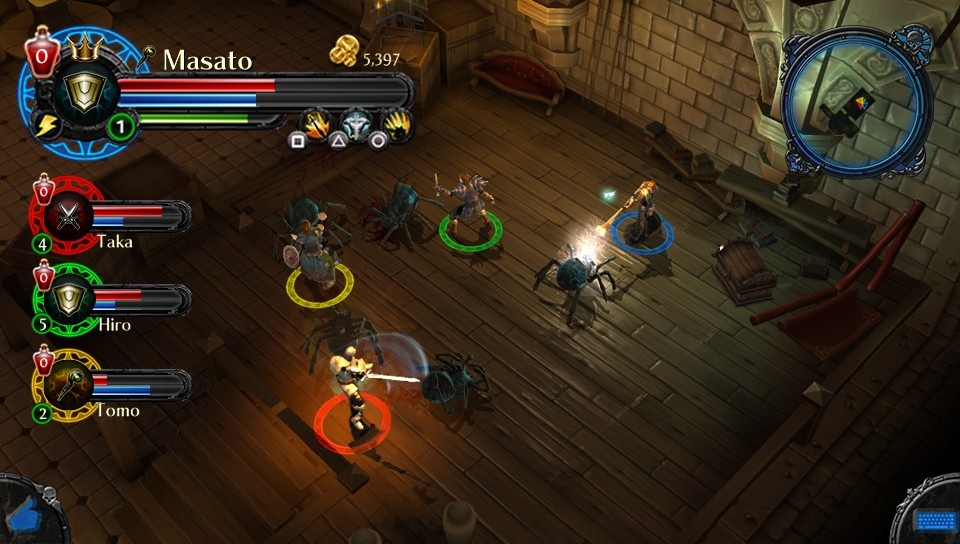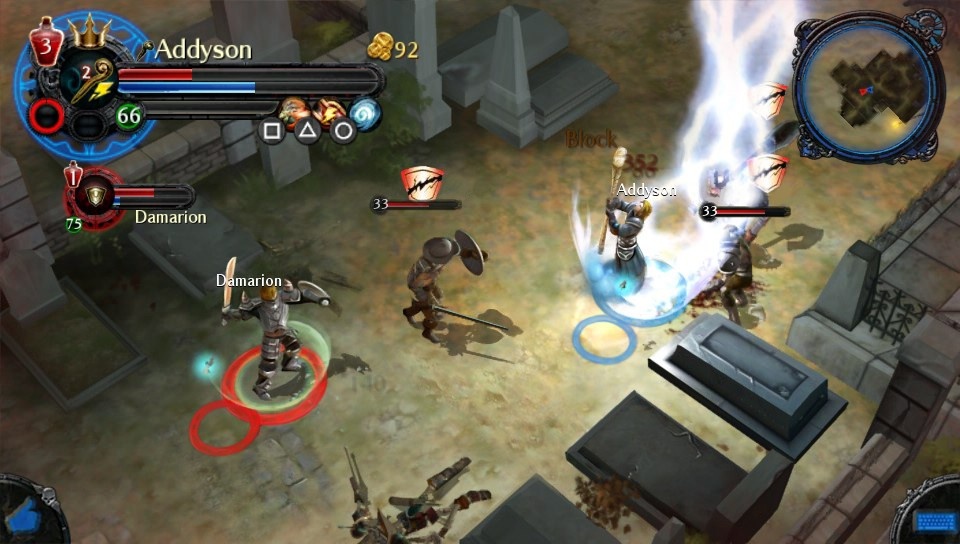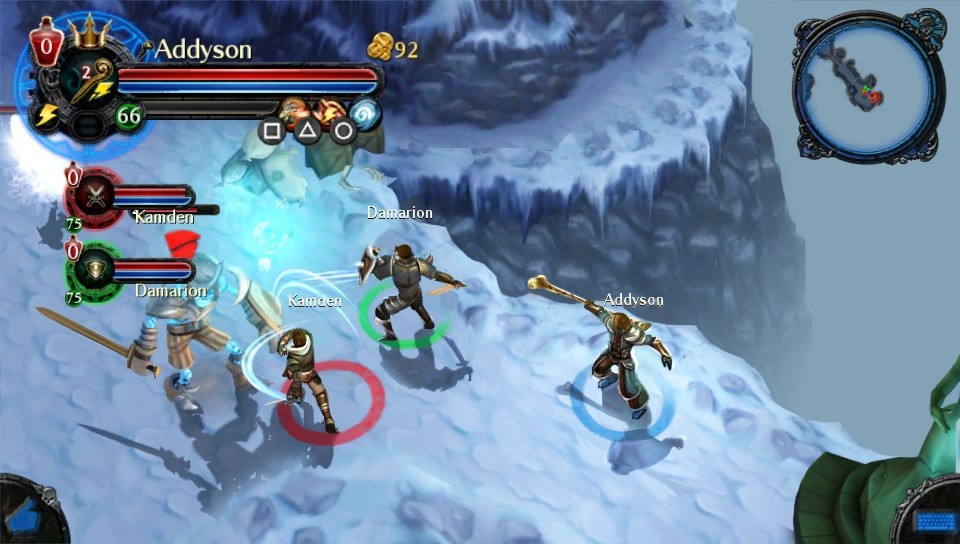While Sony launched both the PSP and the PlayStation 3 with entries in the Untold Legends series of dungeon crawlers, it seems to have missed the boat with the launch of the PlayStation Vita. Gameloft hopes to fill the void with Dungeon Hunter: Alliance, a port of the PS3 downloadable game, which in turn was a quasi-remake of an iPhone game. As a result, this is an adventure avid dungeon crawlers might have experienced already, and paid a lot less to do so. Still, it hits a lot of the right notes when it comes to mimicking its forebears like Diablo and Baldur's Gate: Dark Alliance, making it a game to look into if you're desperate to slay some monsters and collect loot on the go.

Most games try to kill you, but in Dungeon Hunter you're already dead. The story sees you, an old king, being resurrected in order to save your kingdom from impending doom. Like the rest of Dungeon Hunter's elements, the story is nothing ambitious and is highly derivative of fantasy tropes that came before it. That said, it seems to know this about itself and doesn't waste much time getting you up to speed before letting you slay thousands of monsters. It's a little disappointing, though, that with all the power in the Vita and the promise of its high-quality experiences, the vast majority of Dungeon Hunter isn't voiced. The story is told by in-engine cutscenes that are easy to skip through, which is nice if you don't care about it or are replaying the game.
The action is exactly what you would expect from a Diablo-esque dungeon crawler. You start the game as a warrior, rogue, or mage, each of which favors different attributes. Each time you level up, you are given two points to distribute among your attributes (strength, dexterity, and so on), as well as one skill point to unlock or upgrade an ability on the skill tree. Well, "tree" is a bit of a misnomer. Different skill options become available as you level up, but they aren't tied to one another. On the one hand, this offers freedom to unlock whatever skills you want without having to worry about working toward certain abilities or locking yourself out of others. On the other hand, it's a system without a ton of depth and with no real surprises.
So you spend a lot of your time mashing the X button, throwing some skills in here and there for flavor, collecting precious loot, and strengthening your character while chugging potion after potion to make sure you don't die. This is simple and derivative, yes, but it can still be a lot of fun. Loot lust is in full effect; picking up newer, better gear and seeing it make your character look awesome is exciting. Unfortunately, the game's legacy works against it. Being a port of a PS3 game isn't a problem in and of itself--a console-like experience in your hand is actually what a lot of people want out of the Vita. The problem is being a $39.99 port of a $12.99 PlayStation Network game. There are aspects of the package that were impressive for the iPhone and perfectly acceptable in a budget downloadable game that are harder to overlook in a pricier retail product.

That's not to say that Gameloft didn't put at least a little work into this new version of Dungeon Hunter, but the Vita-exclusive features are hit and miss. Touch-screen support, for example, is a mostly great addition that helps bridge some of the iPhone game's accessibility with the preferable experience of playing the game with a real analog stick and buttons, as opposed to virtual imitations on many smartphone games. You can't move or attack with the touch screen, but you can zoom in and out, bring up the map or character sheet, and manage inventory. It works well and can be convenient.
But other Vita features the game uses are the rear touch pad and accelerometer, and that's where you start to run into problems. When stunned or confused, you can shake the Vita system to regain control of your character. This can end up being awkward during battles because you're forced to shake the same thing you're trying to look at, and the action quickly becomes a hassle. Another problem is in controlling your fairy partner, who helps you hunt buried treasure and perform offensive spells throughout the game. One way to control her movement is with the right stick, which works fine. Another way to move the fairy is with the rear touch pad. In theory, this is a great idea. In practice, it doesn't work as well as intended. It's too easy to accidentally move her while simply trying to rest your hands comfortably on the back of the Vita. To use her magic spell, you have to double tap the touch screen, which is an awkward thing to do when the action is heavy, and it doesn't always register when you want it to. And if you accidentally move the fairy with the rear touch pad and don't realize it, you'll probably end up casting her spell in a useless area away from the battle.

Those flaws aside, the translation to the Vita was mostly a positive one, and the game remains enjoyable if you're in the mood for a good dungeon crawl. It's nothing too special, mind you, but it's a fun-enough hack-and-slash romp through tried-and-true fantasy environments. It suffers from some repetition, a few technical hiccups, horrible load times, and a severe lack of "Scroll of Town Portal" technology, but there's fun to be had. The main story could easily take you a dozen or more hours if playing by yourself, and you can team up with up to three other people online or off to add to the fun. Once you hit level 25, you can also take your character into the Pit of Trials, which is essentially an endless survival mode for players who want to see how long they can kill things.
The biggest hurdle really is the price. If this were a cheaper downloadable game like its predecessors, it would be easier to recommend. As it is, it's hard to feel like you're getting a good deal when an almost identical experience is available on other platforms at a lower cost. These dungeons may be worth hunting in, but you can do that just as well somewhere else.